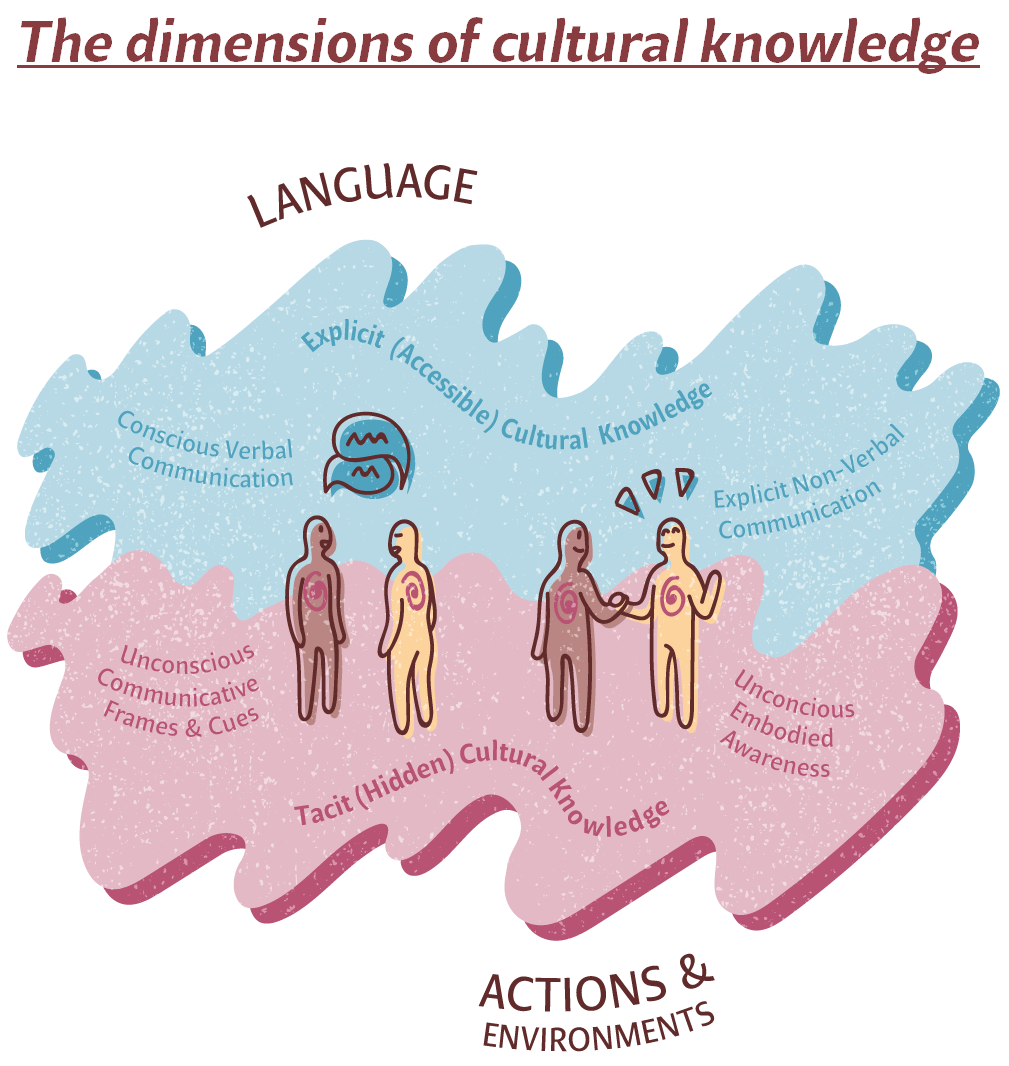Our approach
As outsiders to your community or organisational context we are able to ask fresh questions that help you shed light on knowledge — and assumptions — that would otherwise remain obscured or unexamined.
Drawing attention to tacit culture — unlocking 'hidden' aspects of social and cultural knowledge
Most of the time we are unaware of the social and cultural ‘rules’ that structure our daily interactions. We don’t need to pay conscious attention to them, because we know ‘intuitively’ how to act in familiar contexts.
We might be more aware of the ‘grammar’ of social interaction and cultural rules when we face a new or changed context, like a new workplace culture, or when something in the external environment changes.
Even so, much of our ‘cultural’ knowledge is below the level of our consciousness (tacit culture), so when our usual ways of dealing with things don’t work, we’re only partly aware of how and what to change.

Enhancing cultural awareness
- We help you unlock the hidden potential of tacit (unconscious) cultural knowledge systems and cultural 'frames' to build an organic and holistic organisational culture and outlook
- We work with you to see your organisational culture — or your clients' cultural and social contexts — from a new perspective
- This gives you new insights, leading to more intuitive systems and services
- Our core strengths are in ethnographic research — a set of methods for investigating the social and cultural context of human interaction from the perspective of the participants themselves
- By observing what people do and talking with them about their experience we open up fresh perspectives on familiar aspects of community or organisational life
- Through this we help you reach a more holistic understanding of the conscious and unconscious social and cultural ‘rules’ that make your context unique
Click below to find out more…
“People need ‘the confidence and tools to lean into, instead of shy away from, tension and conflict.”
“We don’t see human complexity as the problem, but rather the pathway to the solution.”


